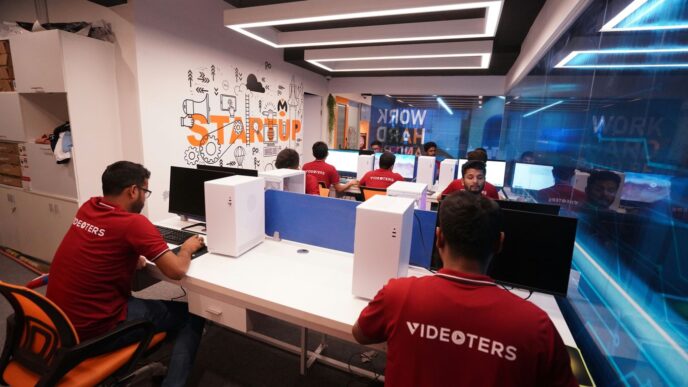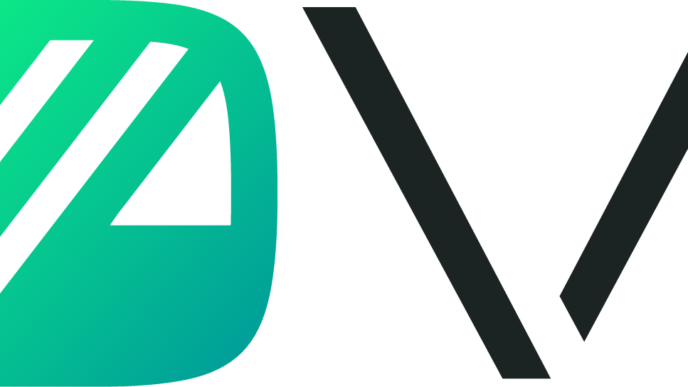Looking for a job that lets you work from anywhere? The startup world is buzzing with opportunities, and many of them are fully remote. Whether you’re into coding, crunching numbers, or talking to customers, there’s likely a remote startup job out there for you. We’ve rounded up some of the top areas where companies are hiring right now, so you can start your search for that perfect work-from-home gig.
Key Takeaways
- Many startups are hiring for remote positions across various departments.
- Software Engineering and Analytics & Data Science are popular fields for remote startup jobs.
- Marketing, Product Management, and Sales roles are also frequently available remotely.
- Customer Success, Finance, IT, and HR positions offer remote work options.
- Hardware Engineering and UX/Design roles are also part of the remote startup job market.
1. Software Engineering
If you’re someone who likes to build things, then software engineering roles are probably what you’re looking for. Startups are always in need of talented coders to bring their ideas to life. This can mean anything from developing new features for an existing app to building a product from the ground up. The demand for skilled engineers remains high, especially for those with experience in popular languages and frameworks.
The ability to adapt and learn new technologies quickly is a big plus in the fast-paced startup world.
Here are some common areas you might find yourself working in:
- Frontend Development: Building the parts of an application that users interact with directly. Think websites, mobile app interfaces, and user dashboards.
- Backend Development: Working on the server-side logic, databases, and APIs that power the application. This is the engine behind the scenes.
- Full-Stack Development: A bit of both! You’ll handle both the user-facing parts and the server-side operations.
- Mobile Development: Creating applications specifically for iOS or Android devices.
Many startups are looking for engineers who can wear multiple hats, so having a broad skill set can open up more opportunities. Don’t be afraid to apply even if you don’t tick every single box on the job description; startups often value potential and a willingness to grow.
2. Analytics & Data Science
If you’re someone who loves digging into numbers and finding patterns, the analytics and data science field is booming with remote opportunities. Startups are constantly looking for sharp minds to help them make sense of their data, predict trends, and build smarter products. This is your chance to turn raw information into actionable insights that drive business growth.
What kind of work are we talking about?
- Data Analyst: You’ll be cleaning data, creating reports, and visualizing information so others can understand it. Think dashboards and presentations that tell a story.
- Data Scientist: This role often involves building predictive models, using machine learning, and developing algorithms to solve complex problems. You might be forecasting sales or personalizing user experiences.
- Machine Learning Engineer: Focused on building and deploying machine learning models, this is a more technical role that requires strong programming skills.
Many companies are hiring for these positions, and the ability to work from anywhere means you’re not limited by location. It’s a great time to get into a field that’s only going to become more important.
3. Marketing
Marketing roles in startups are all about growth and getting the word out. It’s a fast-paced environment where you’ll likely wear many hats. Think about content creation, social media management, email campaigns, and maybe even some SEO work. The goal is to connect with customers and build a brand.
Startups are always looking for creative ways to reach their audience.
Here are some common areas you’ll find in startup marketing:
- Content Marketing: Creating blog posts, articles, videos, and infographics to attract and engage a target audience.
- Digital Marketing: Managing online advertising, social media presence, and email outreach.
- Product Marketing: Focusing on how to position and launch new products or features to the market.
- Growth Marketing: Using data and experimentation to find new ways to acquire and retain customers.
Many of these positions are fully remote, giving you the flexibility to work from anywhere. It’s a great field if you enjoy problem-solving and seeing the direct impact of your work on a company’s success.
4. Product Management
Product management roles are hot right now, especially in the startup world. These jobs are all about figuring out what a company should build next. It’s not just about having ideas, though. You’re the bridge between what customers need, what the business wants, and what the engineering team can actually make.
A good product manager needs to be a jack-of-all-trades, understanding market trends, user behavior, and technical possibilities. You’ll spend a lot of time talking to people – customers, sales teams, developers, designers – to get a clear picture of the product’s journey from idea to launch and beyond.
What does a typical day look like? Well, it varies, but you might find yourself:
- Gathering feedback from users and analyzing it to find patterns.
- Writing up requirements for new features so the development team knows exactly what to build.
- Prioritizing what gets built next based on business goals and user impact.
- Working with marketing to plan how to tell the world about your new product or feature.
- Keeping an eye on competitors and the overall market landscape.
If you like solving puzzles, talking to lots of different people, and shaping the future of a product, this could be the perfect fit. Startups often look for people who can wear many hats and are comfortable with a fast-paced environment where things change quickly. It’s a challenging but really rewarding path if you’re up for it.
5. Sales & Business Development
If you’re someone who loves connecting with people and figuring out how to grow a business, then sales and business development roles are probably up your alley. These jobs are all about building relationships, understanding what customers need, and finding ways for the company to meet those needs. It’s not just about making a sale; it’s about creating partnerships that last.
The demand for skilled sales professionals in the startup world remains high, especially for those who can adapt to new products and markets.
What does a typical day look like?
- Prospecting: Finding potential customers or partners. This might involve research, outreach via email or phone, and networking.
- Discovery Calls: Talking to leads to figure out their problems and if your company’s product or service is a good fit.
- Presenting Solutions: Showing how your company can help solve those problems, often through demos or detailed proposals.
- Negotiation & Closing: Working out the terms of a deal and getting it signed.
- Account Management: For some roles, this means keeping existing customers happy and looking for opportunities to expand the business with them.
Here are some common types of roles you might find:
- Sales Development Representative (SDR): Focuses on the early stages of the sales process, like identifying and qualifying leads.
- Account Executive (AE): Manages the sales process from initial contact to closing the deal.
- Business Development Manager (BDM): Works on strategic partnerships and new market opportunities.
- Sales Operations: Supports the sales team with tools, processes, and data analysis to make them more effective.
These positions often require strong communication skills, a good amount of persistence, and the ability to learn quickly about different industries and products. If you enjoy a challenge and the idea of directly impacting a company’s growth, this is a great area to explore.
6. Customer Success

Customer Success roles are all about making sure clients get the most out of a product or service. It’s not just about fixing problems when they pop up; it’s more about being proactive. You’re the bridge between the company and the people using its stuff, helping them achieve their goals. This means you’re constantly learning about customer needs and how the product can meet them.
What does a typical day look like? Well, it can vary a lot, but here are some common tasks:
- Onboarding new customers: Guiding them through setup and initial use.
- Regular check-ins: Making sure customers are happy and finding value.
- Troubleshooting and support: Helping resolve any issues that come up.
- Gathering feedback: Collecting thoughts on the product to share with the development team.
- Identifying upsell or cross-sell opportunities: Spotting ways customers could benefit from more features or other products.
Companies are looking for people who are good communicators, patient, and can really put themselves in the customer’s shoes. If you enjoy helping people and solving problems, this could be a great fit. The demand for these roles in remote startups is growing because keeping existing customers happy is often more cost-effective than finding new ones.
7. Finance & Operations
The engine room of any startup, finance and operations roles are super important for keeping things running smoothly. These jobs are all about making sure the money is managed right, the day-to-day tasks get done, and the company can actually grow without falling apart.
Think about it: someone has to handle the payroll, keep the books balanced, and make sure the company has enough cash to pay its bills and invest in new projects. That’s where finance pros come in. They’re not just crunching numbers; they’re helping to shape the company’s financial future.
Operations folks, on the other hand, are the wizards who make sure everything else works. This can mean anything from setting up new office spaces (even if they’re virtual!) to managing vendor relationships and making sure the company’s processes are efficient. Without solid finance and operations, even the best startup idea can hit a wall.
Here are some common areas you’ll find in remote finance and operations roles:
- Financial Planning & Analysis (FP&A): This involves forecasting, budgeting, and helping leadership make smart financial decisions.
- Accounting: Keeping the books clean, managing accounts payable and receivable, and preparing financial statements.
- Operations Management: Streamlining processes, managing resources, and ensuring the business runs efficiently.
- Payroll & Benefits Administration: Making sure employees get paid correctly and have access to their benefits.
If you’ve got a knack for numbers and a desire to build efficient systems, this sector is full of opportunities. Many startups are looking for experienced individuals to help them scale. For instance, a Finance Operations Manager role might be just what you’re looking for if you have a solid background in financial management and want to work remotely.
8. IT, Security, & DevOps

Keeping the digital gears turning and the data safe is a big deal for any startup, especially when everyone’s working from different places. This is where IT, Security, and DevOps pros come in. They’re the ones building and maintaining the systems that let everyone else do their jobs without a hitch.
Think about it: without solid IT infrastructure, remote teams can’t connect. Without strong security measures, sensitive company information is at risk. And without smooth DevOps practices, new features and updates can take forever to get out the door, slowing down the whole company.
These roles are super important for making sure a startup can grow and operate efficiently in a remote-first world.
Here’s a look at what these jobs often involve:
- IT Support & Systems Administration: This is about keeping the computers, networks, and software running smoothly for everyone. It includes setting up new employees, troubleshooting tech problems, and managing hardware and software licenses. You’re the go-to person when the Wi-Fi goes down or a printer stops working.
- Cybersecurity: Protecting the company’s digital assets is key. This means identifying threats, setting up defenses like firewalls and encryption, and responding to security incidents. It’s a constant game of staying one step ahead of bad actors.
- DevOps Engineering: This role bridges the gap between development and operations. DevOps engineers automate and streamline the software development lifecycle, from coding and testing to deployment and monitoring. They help teams release software faster and more reliably.
Startups are always looking for people who can handle these technical challenges. If you’re good at problem-solving, enjoy working with technology, and can adapt to new tools and threats, there are definitely opportunities here.
9. Hardware Engineering
Building the physical stuff that makes our digital world tick is a big deal, and guess what? You can do it from home now. Remote hardware engineering roles are popping up, especially in startups that are creating new gadgets, smart devices, or specialized equipment. Think about the engineers designing the next generation of wearables, IoT devices, or even components for electric vehicles – many of them are working remotely.
The demand for skilled hardware engineers who can work independently and collaborate across distances is growing. This field requires a solid grasp of electronics, mechanics, and often, embedded systems. If you’re someone who likes to see their ideas take physical form, this could be your next move.
What kind of work are we talking about?
- Prototyping and Design: Creating and testing new hardware designs, often using CAD software and simulation tools.
- Component Selection and Integration: Choosing the right parts and making sure they all work together smoothly.
- Testing and Validation: Rigorously testing prototypes to make sure they meet performance and safety standards.
- Documentation: Writing clear specifications, test plans, and user manuals.
Many startups are looking for folks with experience in areas like PCB design, firmware development, and signal integrity. You might be working on anything from tiny sensors to larger industrial equipment. It’s a chance to be part of creating tangible products that solve real problems. If you’re interested in finding these kinds of roles, checking out opportunities in embedded systems is a good start.
10. Talent Acquisition, HR, & People Ops
Startups are always looking for good people, and that means the teams who find, hire, and keep them are super important. If you’re someone who likes connecting with others, figuring out how to make a company a great place to work, or just generally making sure things run smoothly for employees, this is your area.
The demand for skilled HR and recruiting professionals in the startup world is really picking up. Companies know that their people are their biggest asset, and they need folks who can build strong teams from the ground up. This isn’t just about filling seats; it’s about finding the right fit, someone who can grow with the company and contribute to its culture.
What does a typical day look like? Well, it can vary a lot. You might be:
- Sourcing candidates for a new engineering role – digging through LinkedIn, attending virtual job fairs, and networking.
- Developing onboarding programs to make new hires feel welcome and productive right away.
- Working on employee engagement initiatives, like planning team events or creating feedback systems.
- Helping to shape company policies and making sure everyone understands them.
- Analyzing HR data to see what’s working and what could be better, like retention rates or employee satisfaction.
It’s a role that requires a good mix of people skills, organizational talent, and a bit of strategic thinking. If you’re good at spotting potential and helping others succeed, you’ll find plenty of opportunities here.
11. UX & Design
If you’re someone who thinks about how people interact with technology, then the UX and Design field might be your next stop. Startups are always looking for talented designers to make their products not just functional, but also enjoyable to use. This means creating intuitive interfaces, smooth user flows, and visually appealing layouts. It’s a role that sits right at the intersection of user needs and business goals.
The demand for skilled UX/UI professionals in the startup world is really high right now. Companies know that a good user experience can make or break their product. They need people who can understand user behavior, conduct research, and translate those findings into practical design solutions. This often involves:
- User research and persona development
- Wireframing and prototyping
- Usability testing and iteration
- Creating high-fidelity mockups and design systems
Many remote positions are available, allowing you to work from pretty much anywhere. If you’re looking to find your next remote role in this area, there are platforms that can help connect you with opportunities. It’s a dynamic field, and startups often offer a chance to work on exciting, cutting-edge projects.
Ready to Find Your Remote Gig?
So, that’s a look at some of the remote startup jobs out there right now. It’s pretty cool how many options there are for working from pretty much anywhere. Whether you’re into coding, sales, or something else entirely, there’s likely a spot waiting for you. Don’t just scroll past these opportunities – take a moment to check them out. Your next big career move could be just a click away. Good luck with your search!
Frequently Asked Questions
What kind of remote jobs are available?
There are many types of remote jobs, like coding, working with data, marketing, managing projects, sales, helping customers, and even jobs in finance and IT. Startups are hiring for all sorts of roles, so you can find something that fits your skills.
Are these jobs truly remote, or do I need to be in a specific location?
Many of these jobs are 100% remote, meaning you can work from home. Some might be remote-first, which means the company is built around remote work. Always check the job details to see if there are any location requirements, though many offer flexibility to work from anywhere.
How can I find the best remote job for me?
The best way is to create a profile on job sites that focus on remote work. These sites often have curated lists and can match you with jobs. Tailor your profile to highlight your skills and experience, and search through the different job categories to see what’s out there.
What’s the difference between ‘work from home’ and ‘work from anywhere’?
‘Work from home’ usually means you work from your own house. ‘Work from anywhere’ is more flexible and means you can work from different locations, as long as you have a good internet connection. Many remote-first companies offer this kind of freedom.
How do I make my application stand out for a remote startup job?
Startups often look for people who are proactive and can show they can get things done without constant supervision. Highlight projects you’ve completed, skills you’ve learned, and how you can contribute to the company’s growth. A strong profile on a job platform can also help you get noticed.
When will these jobs be available?
This list is for November 2025, so these jobs are available now or will be very soon. Some jobs might close in a few weeks, so it’s a good idea to apply quickly if you see something you like.












